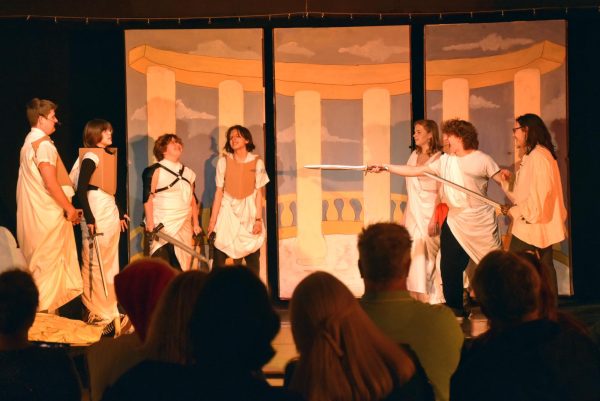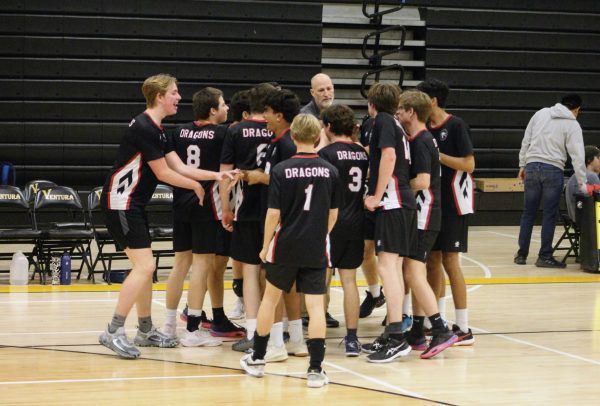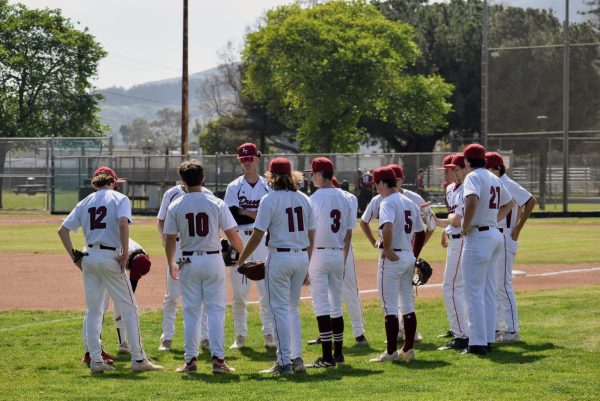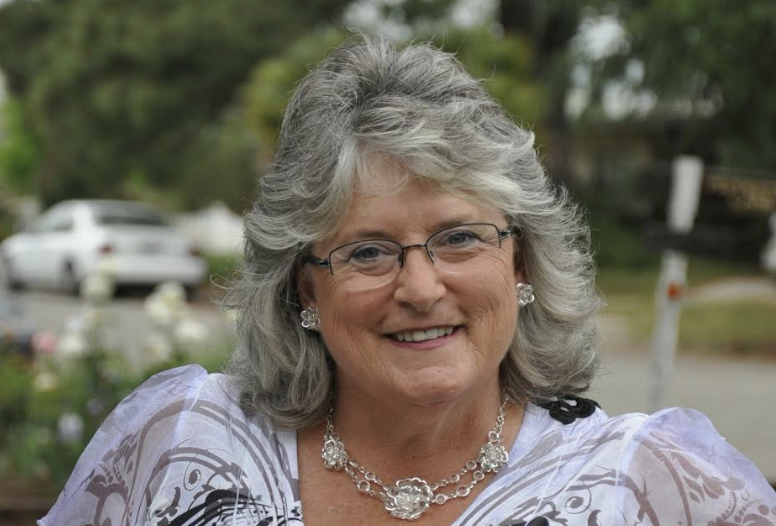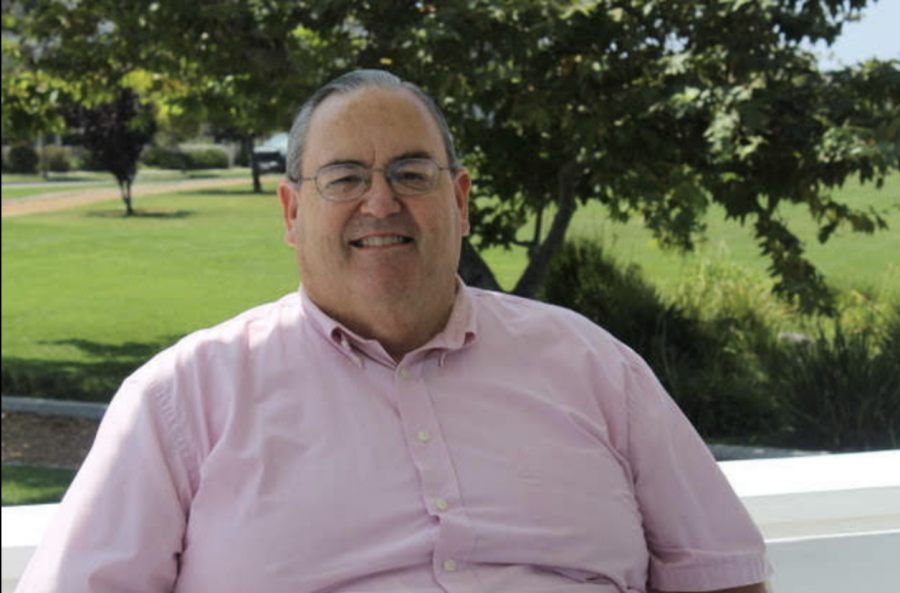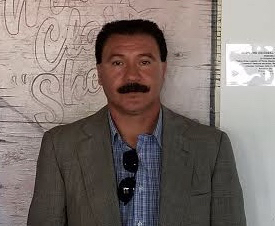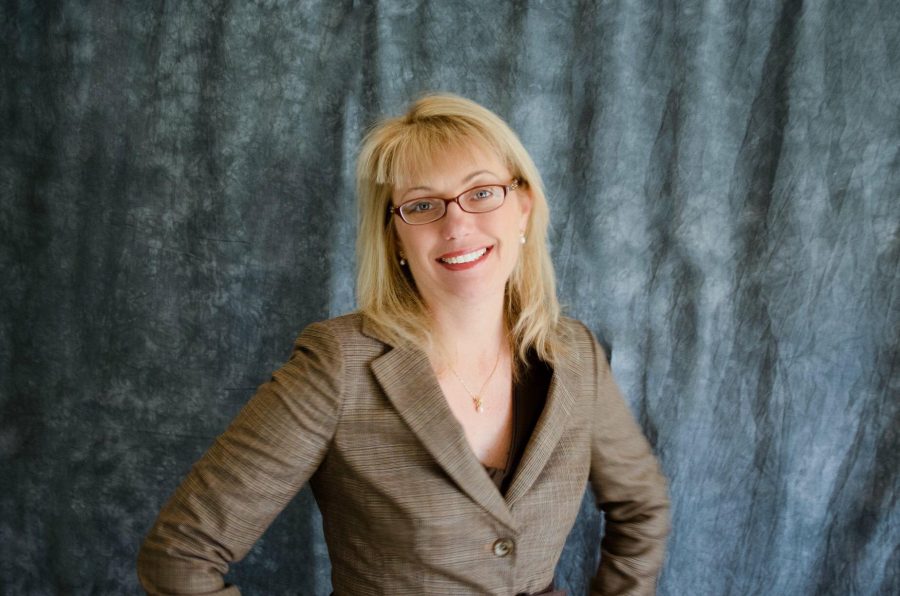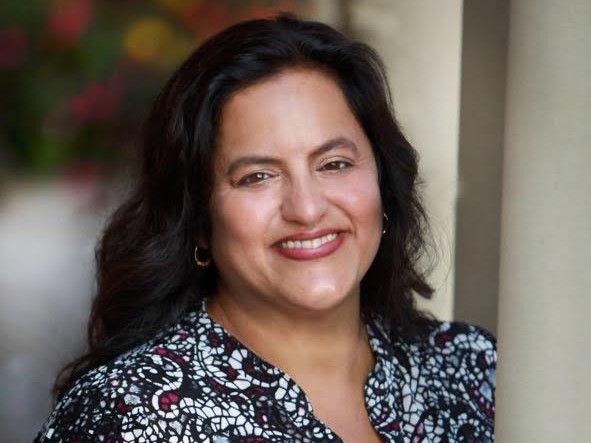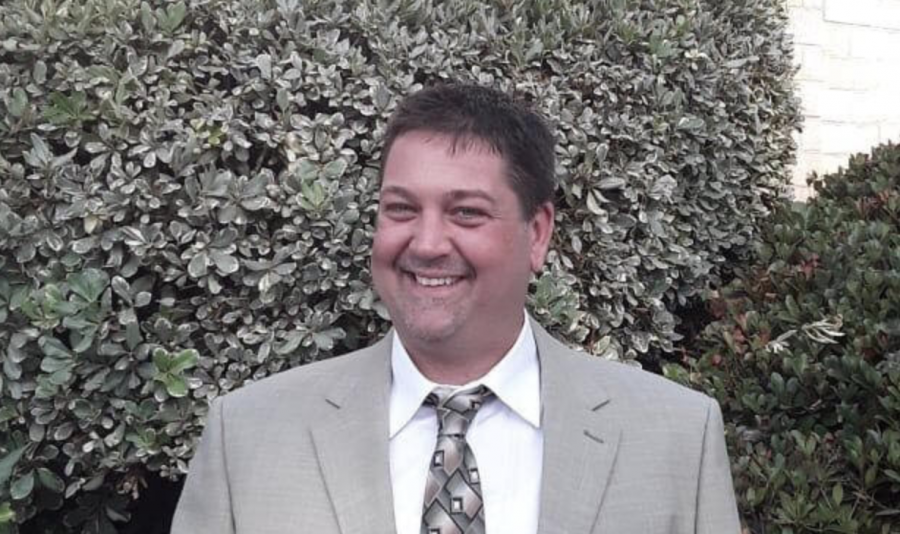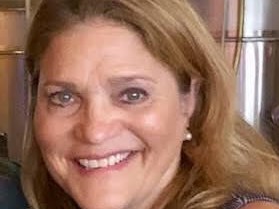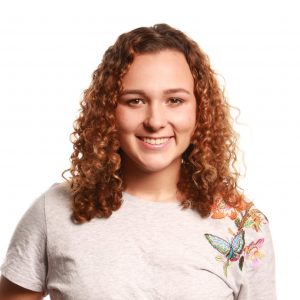INTERVIEWER: What is your background as a Venturan?
LOMAX: My husband and I came to Ventura 44 years ago. We owned a machine shop 一a manufacturing company一 and we opened it down behind what is the “old Target”. Ironically I have to tell you that it used to be the Gym Co; it was a Gym Co. store. When we opened our business we had to wait 30 days for a phone because there were no phones trunk down there and now, of course, it’s all businesses down there. But we had our machine shop open for forty some odd years up here. We did work for Vetco, who actually built the ESC (education service center). Fritz Huntsinger, the owner of Vetco, built the ESC and his business was across the street from it and they are no longer there. We closed our shop about eight years ago. That’s why we came here. And of course I had a child, a daughter, and I was really involved with PTA. We always lived in the Oak View Casitas Springs area, and I was very involved with the PTA at her elementary school, and then she went to De Anza. At the time it was De Anza rather than DATA. I was the PTSA president there for two years. Then she went to Ventura High School and I was the PTSA president for two years there. I ran for the School Board successfully for the first time in 1993. So, it has been 25 years.
INTERVIEWER: At the end of your term, if elected, how will Ventura Unified schools be using technology in ways they aren’t right now? What will be your steps to achieving that result?
LOMAX: Okay, it is funny that you should ask. After I got elected in 1993, I was a paralegal at the time. And then, I went to school in 1996 because my husband’s shop became more automated and we had to have networking technologies and the machines were running on computers. I learned networking and computers and I ultimately owned my own business and then ultimately, I was asked by the Ventura office of education out in Camarillo if I wanted to teach computer repair maintenance at Ventura High School, because that was when they rolled out the internet to the teachers on these big screen TVs and things and I taught students to do that and then I taught the students to train the teacher. A lot of the teachers didn’t know how to use the internet. So that was like in ‘97, ‘98.
And then, of course, I learned Cisco Networking and I taught Cisco Networking and I taught a lot of technology classes. And then I taught CAD, which is part of the computer-aided design, which is part of our machine shop business. And then I ultimately taught robotics. So everything that I have done has technology engrained in it. And as a result, I have been一I helped to hire the very first Chief Technology Officer that we had in the district. And I have been one of the board leas in sports technology ever since technology started in our district. Well, not started, but in the classroom. And I absolutely always一 it is one of my passions, it’s one of the things, I personally believe technology is your hub. It doesn’t care if you have 100 spokes or three spokes on a wheel. If that hub breaks, the wheel is not going to work.
So I have always kept technology in the forefront and I always try to keep it in the minds of the other school board members because as you know one school board member by themselves can do nothing. It takes three to five to make something happen. So I always push for technology and I’m hoping一 I mean you kids know more about technology than we do. It’s crazy. 2-year-olds! I saw a little kid in a stroller the other day playing with an IPad or something and I’m thinking “holy smokes, how are we going to teach them?” So, we have to keep on top of it, and we have to keep it going because it’s not going to go away, and it’s not ever going to get slower, it’s only going to get faster. It’s one of my passions and it’s something that I will always work for and strive to make sure that we do the biggest and the best.
INTERVIEWER: In your opinion, what is the next step to ensuring high school students are prepared for the Common Core curriculum and its standardized testing (SBAC)?
LOMAX: Oh my gosh. First of all, those are two things that, I don’t want to say that I hate them, but I hate them. Common Core, any standardized testing is, the bad thing about that is teachers want to teach to the test, rather than teaching common sense. They actually brought out Common Core thinking that if you knew how to relate and figure out the problem then you could do the testing better. But, they’re not一 I am part of the “they”, for some reason it is not meshing. And I think part of it is that when we first heard about Common Core, it was supposed to be where you practically apply what you have learned to another class. So let’s say a physics class: You could go over here and do a physics problem with your hands, with a hands-on experience, and make you understand physics.
But, we haven’t quite gotten there because this whole current day education teaching and have a CTE credential and on, and on, and on, is just gotten muddied. The way that we can prepare children一 students, I don’t want to call you children一 is to continue to teach you the best way we can, while the state and the federal government figure it out. Because it’s not going to happen while you’re still in school. But hopefully, our biggest thing is that we have to prepare you to go to college and go into higher education classes, and have enough of a background in the field and be successful. It’s not an easy problem, it’s something that again, I am the board leas on current technical education because that was一 I taught there for 19 years. And, we have to continue to work on it. But, I think the biggest thing is keeping kids engaged and having them learn by doing, rather than memorizing. Because old math you could memorize. New math and Common Core, you can’t memorize it. So, that’s what we have to do.
INTERVIEWER: The Ventura Unified budget for this year is around 188 million dollars. If I gave you ten million dollars more today to invest in our school district however you see fit, how would you spend it?
LOMAX: You know, 10 million dollars sounds like a lot of money, but we need a lot more than 10 million dollars. But, I wouldn’t turn it down. Again, I think the most important thing is making sure that we have more computer to student ratios; that’s huge. Making sure that we have the resources for teachers to have more engaging classes. To be able to do things more hands on.
I hate to say this because I don’t mean it in a derogatory way, but if I had 10 million more dollars, even though the salaries of our teachers and our staff is a priority for me, but if it was a one time gift of 10 million, I would put it in the classroom with the students and not put it in the salaries. I hate to say it but I would. Because, in order to continue to pay the higher salaries, you have to have money that comes in every year, after year, after year, after year. So, I definitely would put it in for kids.
Can I just give you a little example? When I taught at ACE Charter High School in Camarillo一 ACE stands for Architecture Construction and Engineering一 and I was the Engineering teacher, the physics teacher came to me and said: “We want to一 I want you to build a water balloon launcher, and I want it to have a protractor on it, I want you to have certain angles, and so the kids can figure it out if I give them this problem, how they are doing it.”
So, we went over to the construction class and had them build the base, and then we did all the things that we had to attach so that they knew their angles and everything. And then we asked the architects to make it look aesthetically pleasing because we didn’t know what they could do with the project. But, we all worked together. Then she went out一 the physics teacher一 and she gave all of her kids a problem, a math problem; there were about 25 kids.
If they answered it correctly, from where she was standing from the launcher, they would hit her with the water balloon. Well, the first of the seven or eight kids didn’t hit her. Finally, when the first kid hit her, within minutes you could see the kids going “huh! I know what we did wrong! I know what I did wrong! Can I do it again?” Well, we wouldn’t let them do it again the first time, but we had the project twice. But once the kids could see by practically applying it, and doing it, they got excited about the physics and the math. That’s what I want to see in every classroom. So, if you gave me 10 million dollars, we would all be outside doing fun things.
INTERVIEWER: What do you think is the most pressing issue facing our schools today and how can it be addressed?
LOMAX: Honestly, the most pressing issue is being able to attract and retain teachers. We are going to have a horrific shortage of teachers because who wants to go in and teach kids when they are not making very much money? And, not only that, you don’t have supplies in your classroom, you are buying them out of your own pocket, and you do not have the support that you need to be able to do innovated programs. Now, here at Foothill, you don’t see that as much because you have really innovative people here. You have teachers and staff that want to make it so that the kids love coming to school. But this is a small school compared to Buena or Ventura. So, you double the size of the school and the amount of kids, it’s harder to do that. And I that our biggest thing that we are going to be facing, we are already facing it, is lack of qualified educators, and lack of funds to pay them more. There are several things that approach upon on our general fund like special education, transportation, retiary benefits, that before we could even pay anything, we have to pay all of those. And so it’s hard but I really wish that I could take a bunch of young kids and say, “please become teachers and help us make a difference, don’t look at how it is and say I don’t want to do that,” because I wouldn’t want you to do that either. I want you to have great new ideas to bring in and change things. But if we don’t do something, you’re going to find within five years, that you’re not going to have a pool of teachers to hire. There will be no one out there.
INTERVIEWER: Sometimes to students, school board policy decisions seem to come out of nowhere. Most students don’t know their school board members, don’t know when the board meets, and aren’t informed about the decisions the board makes on a regular basis, like for example decisions about curriculum or disciplinary policies. If you are elected, how do you plan to cultivate a closer relationship between the board and the students, ensuring that they get a chance to speak on issues that pertain to them and are informed of decisions once they happen?
LOMAX: Well, first of all, I think that we do need to reach out and we need it一 we talked about with our new superintendent, we used to have meet and greets around at different campuses, where people can come and meet us. We used to even meet at the mall, and people on a Saturday would come by and talk to us. We have open meetings, they are open by law. They start at 7 o’clock, the first and fourth Tuesdays of every month.
This month, because of fall break, we don’t have a second meeting. And next month because of Thanksgiving we don’t have a second meeting, and also in December. But, normally we have two meetings. Anyone is welcome to come. We actually do host our agenda on our website so people can access it and see if there are issues that they want to talk about.
What I really love is when students bring us issues. Like, the hydration stations. It did no good to have a hydration station at one school, I will say that it is going to remain nameless because I can’t remember which school that it was, but the door was always locked. What good did it do to have a hydration station if the kids couldn’t get into it to fill their water bottles? So, those are the things that I like that kids bring to our attention, or that “gee I’ve gone to the bathroom, six times this last week” and note that there was never any toilet paper in there.
But, also our numbers 一the school board members一 our numbers are published on the website. You can call us at any time. You can text us or email us, whatever. But I think that we absolutely need to get out and let the students know.
When I was placed on Ventura High School’s campus for 17 years, the kids all knew me. I mean, you saw that one student who knew who I was. They knew me, and they knew that they could come to me with issues and that I would encourage them to come to the school board and we would take care of it. But we don’t have that so much anymore, we do need to change that. So I’m glad that you brought that up.
But I will also will, say that there are times when I will go out to a school site and a student or a teacher will say well we can’t do this anymore because you took it away from us and I knew nothing about it. So sometimes, we are the scapegoat when decisions are made at the district office, “oh the school board said so” Well, that’s not always true. So you always have our permission to call us or email us or text us and say “hey, is this true?” And then we can say yes and why.
But, to answer your question completely, if I am re-elected, my goal in the next four years is to have that closer relationship with students, because I miss it, not being in the classroom anymore and asking students how they feel because after all the decisions I make affect you. And who better to ask than the people who have to follow the rules?





